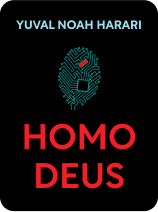

This article is an excerpt from the Shortform book guide to "Homo Deus" by Yuval Noah Harari. Shortform has the world's best summaries and analyses of books you should be reading.
Like this article? Sign up for a free trial here .
Is organized cooperation a uniquely human feature? What is the psychology behind mass human cooperation?
Humanity has a much greater ability to communicate and cooperate than any other species. According to Yuval Noah Harari, the ability of humans to cooperate is the result of humanity’s knack for storytelling. Storytelling allowed us to create “imagined orders” which make mass cooperation possible.
Keep reading to learn about the psychology of mass human cooperation.
The Psychology of Mass Human Cooperation
Historically, humans have used their ability to flexibly cooperate to dominate both animals and other people. Power is usually maintained by the side that can adapt to its surroundings while maintaining strong communication and organization. For example, in pre-Soviet Russia, 3 million noblemen controlled 180 million commonfolk.
Mass organization on such a large scale requires the use of “imagined orders,” or rules and restrictions that people believe to be real, even if they’re not grounded in an objective reality. To fully understand “imagined orders,” you must understand the ways in which people perceive reality:
Objective reality: a reality that can be proven by science and exists regardless of one’s personal beliefs. For example, gravity is an objective reality. Science has proven the existence of gravity, and it will continue to exist regardless of society’s opinions.
Subjective reality: a reality that can’t always be proven by science but feels real to a person or group. For example, pain is a subjective reality. The way that you experience pain is personal to you and may not reflect the way that other people perceive pain.●
Intersubjective reality: a reality that relies on the communication and communal agreements between large groups of people. For example, money is an intersubjective reality. Human beings have attached worth to otherwise worthless materials. Take away its manufactured worth, and a dollar bill is just a piece of paper.
“Imagined orders” rely on intersubjective reality. Governments and religious entities attach meaning to stories, laws, and gods, creating imagined orders in the process. Mass belief in the imagined orders is what allows humans to organize themselves into complex structures and cooperate on a scale that wouldn’t be possible otherwise.
However, most people don’t want to believe that their current beliefs are intersubjective. By removing “objective” meaning, intersubjectivity removes power from “imagined orders” and threatens stability on a national or global scale.
For example, if soldiers no longer believe in the imagined order that dying for your country is noble, they may lose meaning and stop fighting. While they may be controlled by the threat of court martial, if this feeling spreads to hundreds or thousands of soldiers, a country’s military could collapse because it relies on this intersubjective belief to exist.

———End of Preview———
Like what you just read? Read the rest of the world's best book summary and analysis of Yuval Noah Harari's "Homo Deus" at Shortform .
Here's what you'll find in our full Homo Deus summary :
- Why technology is replacing humanist ideals
- How previous generations relied on prayer to deal with serious problems
- How AI and algorithms are going to run the world





